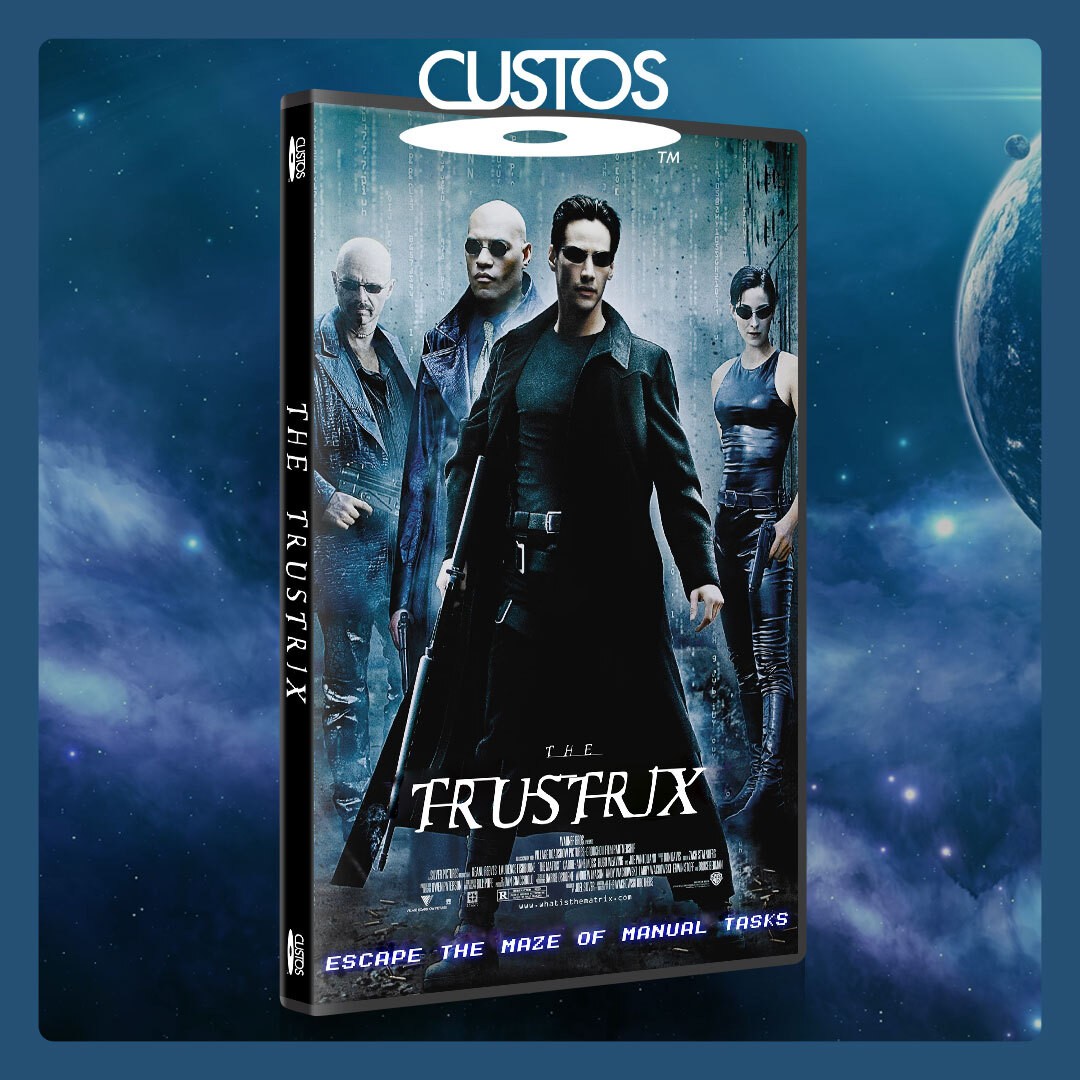Nov 29, 2024
Nov 29, 2024
Nov 29, 2024
Industry
Industry
Industry
How AI powered co-pilots will transform trust and corporate services


Khalil Osman


The era of AI is here
AI is revolutionizing the way we work and will continue to do so for decades. The technology has already made a significant impact on how we handle day-to-day tasks, introducing efficiencies that were unimaginable just a few years ago. From automation to smarter decision-making, AI is not just a tool; it’s becoming a fundamental part of how businesses and individuals operate. This transformative power ensures that AI will remain a driving force in innovation for years to come.
Some industries see immediate impacts whereas others are slower to adopt (and that’s completely normal)
The rate of AI adoption varies widely across industries. Some sectors have already embraced AI at scale, particularly in consumer-facing spaces. For instance, tools like ChatGPT and Perplexity have surged in popularity, with ChatGPT alone averaging 1.7 billion monthly site visits. This level of adoption reflects how accessible and impactful AI has become for individual users.
In the B2B space, AI-powered products have emerged to tackle manual tasks in areas like compliance and customer service. However, industries governed by strict regulations—such as financial and corporate services—face unique challenges. These sectors often move slower due to the complexities of compliance and risk management. Despite this, the long-term potential for AI in these industries is undeniable as organizations find ways to navigate regulatory hurdles.
What are co-pilots and how do they differ from traditional automation methods?
Co-pilots are digital assistants integrated into platforms to act as dynamic helpers, capable of performing tasks, offering insights, and participating in processes that were previously manual or inaccessible. Unlike traditional automation methods, which typically require significant setup and predefined workflows, co-pilots bring a more intuitive and proactive approach to automation.
Traditionally, automation required manual effort to design and configure workflows. For instance, consider a KYC platform. While these platforms are incredibly powerful, their automation kicks in only after workflows are meticulously set up. You decide which documents to validate or collect, manually configure the sequence of steps, and then allow users to navigate through that process. The setup phase remains a manual effort.
Co-pilots, however, change the game by not only executing tasks but also automating the setup itself. They can identify the necessary steps, configure workflows dynamically, and enable true end-to-end automation. Using the same KYC example, a co-pilot could analyze requirements, suggest or create the appropriate workflows, and manage the entire process autonomously. This level of automation eliminates much of the manual setup and allows businesses to achieve seamless, fully automated operations.
The potential of co-pilots goes far beyond KYC, with applications in fields like compliance, customer service, operations, and even creative industries, enabling businesses across sectors to benefit from smarter, more adaptive workflows.
How co-pilots as a service are going to be extremely impactful
AI-powered co-pilots have the potential to reshape workflows across industries. These digital assistants act as an extension of a team, taking over time-intensive tasks that would otherwise require significant human effort. By automating routine processes, co-pilots save both time and money while enabling teams to focus on higher-value work.
The beauty of co-pilots lies in their versatility. They can adapt to different roles, providing support across a range of functions. Whether it’s generating reports, summarizing lengthy documents, or assisting with compliance, co-pilots provide an extra layer of productivity. This adaptability makes them especially impactful for businesses looking to streamline operations in a flexible and cost efficient way.
How co-pilots will change the TCSP space
The Trust and Corporate Service Provider (TCSP) space is ripe for transformation through co-pilot technology. TCSPs manage a wide range of responsibilities, from compliance and KYC checks to client communication and operational tasks. These processes are often manual, repetitive and resource-intensive, making them ideal candidates for automation.
AI-powered co-pilots can handle critical client interactions, such as following up on missing documents or collecting onboarding information. On the compliance side, they can flag inconsistencies or risks during due diligence processes, significantly reducing the burden on human teams. By automating these workflows, co-pilots not only improve efficiency but also enhance accuracy, ensuring that TCSPs remain compliant with evolving regulations.
How Custos-enabled co-pilots will enhance work
At Custos, we’re leveraging the power of AI to design co-pilots tailored specifically for the trust and corporate services space. Our vision is to provide TCSPs with an intelligent system that automates manual tasks and integrates seamlessly into their operations.
Custos co-pilots are designed to handle everything from compliance checks to operational workflows, offering a unified solution for diverse needs. For example, as clients are onboarded, entities can be automatically created within the system, eliminating the need for duplicate efforts. Similarly, co-pilots can streamline compliance by integrating KYC processes directly into the platform, generating reports and insights without added complexity.
By empowering TCSPs to offload repetitive tasks, Custos co-pilots enhance productivity and allow teams to focus on strategic, client-facing work. This is the next step in AI-driven innovation, and Custos is at the forefront of it all.

The era of AI is here
AI is revolutionizing the way we work and will continue to do so for decades. The technology has already made a significant impact on how we handle day-to-day tasks, introducing efficiencies that were unimaginable just a few years ago. From automation to smarter decision-making, AI is not just a tool; it’s becoming a fundamental part of how businesses and individuals operate. This transformative power ensures that AI will remain a driving force in innovation for years to come.
Some industries see immediate impacts whereas others are slower to adopt (and that’s completely normal)
The rate of AI adoption varies widely across industries. Some sectors have already embraced AI at scale, particularly in consumer-facing spaces. For instance, tools like ChatGPT and Perplexity have surged in popularity, with ChatGPT alone averaging 1.7 billion monthly site visits. This level of adoption reflects how accessible and impactful AI has become for individual users.
In the B2B space, AI-powered products have emerged to tackle manual tasks in areas like compliance and customer service. However, industries governed by strict regulations—such as financial and corporate services—face unique challenges. These sectors often move slower due to the complexities of compliance and risk management. Despite this, the long-term potential for AI in these industries is undeniable as organizations find ways to navigate regulatory hurdles.
What are co-pilots and how do they differ from traditional automation methods?
Co-pilots are digital assistants integrated into platforms to act as dynamic helpers, capable of performing tasks, offering insights, and participating in processes that were previously manual or inaccessible. Unlike traditional automation methods, which typically require significant setup and predefined workflows, co-pilots bring a more intuitive and proactive approach to automation.
Traditionally, automation required manual effort to design and configure workflows. For instance, consider a KYC platform. While these platforms are incredibly powerful, their automation kicks in only after workflows are meticulously set up. You decide which documents to validate or collect, manually configure the sequence of steps, and then allow users to navigate through that process. The setup phase remains a manual effort.
Co-pilots, however, change the game by not only executing tasks but also automating the setup itself. They can identify the necessary steps, configure workflows dynamically, and enable true end-to-end automation. Using the same KYC example, a co-pilot could analyze requirements, suggest or create the appropriate workflows, and manage the entire process autonomously. This level of automation eliminates much of the manual setup and allows businesses to achieve seamless, fully automated operations.
The potential of co-pilots goes far beyond KYC, with applications in fields like compliance, customer service, operations, and even creative industries, enabling businesses across sectors to benefit from smarter, more adaptive workflows.
How co-pilots as a service are going to be extremely impactful
AI-powered co-pilots have the potential to reshape workflows across industries. These digital assistants act as an extension of a team, taking over time-intensive tasks that would otherwise require significant human effort. By automating routine processes, co-pilots save both time and money while enabling teams to focus on higher-value work.
The beauty of co-pilots lies in their versatility. They can adapt to different roles, providing support across a range of functions. Whether it’s generating reports, summarizing lengthy documents, or assisting with compliance, co-pilots provide an extra layer of productivity. This adaptability makes them especially impactful for businesses looking to streamline operations in a flexible and cost efficient way.
How co-pilots will change the TCSP space
The Trust and Corporate Service Provider (TCSP) space is ripe for transformation through co-pilot technology. TCSPs manage a wide range of responsibilities, from compliance and KYC checks to client communication and operational tasks. These processes are often manual, repetitive and resource-intensive, making them ideal candidates for automation.
AI-powered co-pilots can handle critical client interactions, such as following up on missing documents or collecting onboarding information. On the compliance side, they can flag inconsistencies or risks during due diligence processes, significantly reducing the burden on human teams. By automating these workflows, co-pilots not only improve efficiency but also enhance accuracy, ensuring that TCSPs remain compliant with evolving regulations.
How Custos-enabled co-pilots will enhance work
At Custos, we’re leveraging the power of AI to design co-pilots tailored specifically for the trust and corporate services space. Our vision is to provide TCSPs with an intelligent system that automates manual tasks and integrates seamlessly into their operations.
Custos co-pilots are designed to handle everything from compliance checks to operational workflows, offering a unified solution for diverse needs. For example, as clients are onboarded, entities can be automatically created within the system, eliminating the need for duplicate efforts. Similarly, co-pilots can streamline compliance by integrating KYC processes directly into the platform, generating reports and insights without added complexity.
By empowering TCSPs to offload repetitive tasks, Custos co-pilots enhance productivity and allow teams to focus on strategic, client-facing work. This is the next step in AI-driven innovation, and Custos is at the forefront of it all.
Blog
Blog
Blog


